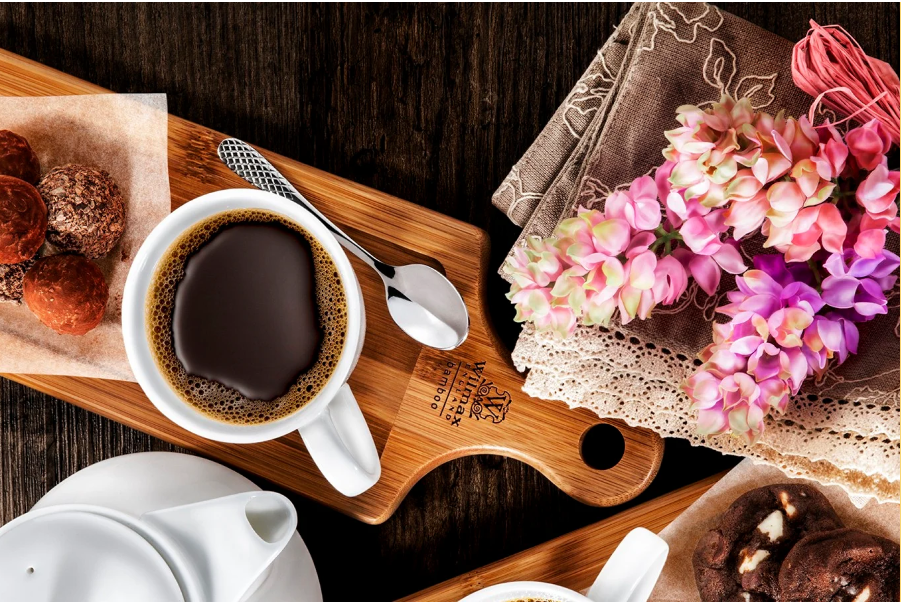Sacred Foods: Exploring Culinary Traditions Linked to Spirituality 🙏🌾🍽️

Throughout history, food has played a powerful role not just in sustaining the body, but in nourishing the soul. Across cultures and religions, certain dishes and ingredients have become deeply intertwined with rituals, festivals, and spiritual beliefs. These sacred foods tell stories, connect communities, and bridge the physical with the divine.
Let’s take a journey through some of the most meaningful culinary traditions around the world—and the deeper symbolism behind them.
🍞 1. Bread in Christianity
In many Christian traditions, bread holds deep significance.
-
During the Eucharist or Holy Communion, bread symbolizes the body of Christ.
-
Unleavened bread (without yeast) is central to Passover-style celebrations.
-
In Orthodox and Catholic cultures, blessing bread (like prosphora or panettone) is part of major feast days.
👉 Symbolism: Life, sacrifice, community, divine presence.
🕉️ 2. Prasadam in Hinduism
In Hindu temples and homes, food offered to deities is called prasadam—blessed and then shared.
-
Often includes fruits, sweets like laddu or halwa, and cooked rice.
-
Prepared with devotion, offered to gods, and eaten mindfully.
-
Emphasizes purity, intention, and gratitude.
👉 Symbolism: Offering oneself to the divine, receiving blessings through nourishment.
🛐 3. Halal and Kosher Practices
In Islam and Judaism, food preparation follows sacred laws.
-
Halal (Islam): Permissible foods prepared according to Quranic law.
-
Kosher (Judaism): Follows dietary laws in the Torah, including separation of meat and dairy.
Both systems emphasize ethical sourcing, cleanliness, and mindfulness—turning eating into a form of worship.
👉 Symbolism: Discipline, reverence, and living in alignment with faith.
🎋 4. Japanese Shojin Ryori (Zen Buddhist Cuisine)
Shojin ryori is a vegetarian cuisine practiced by Buddhist monks in Japan.
-
Free of animal products, garlic, and onions to support inner peace.
-
Simple dishes like simmered vegetables, tofu, and pickles.
-
Meals are often eaten in silence, with mindful chewing and gratitude.
👉 Symbolism: Purity, humility, and the interconnection of all living things.
🕎 5. Passover Foods in Judaism
The Passover Seder is filled with symbolic foods:
-
Matzah: Unleavened bread, symbolizing the haste of the exodus.
-
Bitter herbs: Representing the suffering of slavery.
-
Charoset: A sweet paste of nuts and fruit, symbolizing the mortar used by slaves.
👉 Symbolism: Freedom, remembrance, and divine deliverance.
🧁 6. Sweets and Feasts in Many Faiths
From Eid sweets like baklava and maamoul to Diwali laddus, or Christian Easter cakes and Orthodox honey bread, sweet foods often mark sacred times.
These celebratory dishes bring families together, honor ancestors, and express joy, gratitude, and spiritual renewal.
👉 Symbolism: Celebration, abundance, divine joy.
🌍 7. Indigenous Offerings and Ceremonial Foods
In many Indigenous cultures, food is sacred and shared with the earth, ancestors, and spirits.
-
Corn, beans, squash: Sacred crops in Native American traditions.
-
Feasting ceremonies: Offerings to honor seasons, rites of passage, or harvests.
-
Often involves ritual preparation, singing, and gratitude to the land.
👉 Symbolism: Harmony with nature, respect for life, ancestral connection.
✨ Final Thoughts: Food as a Bridge Between Worlds
Sacred foods are more than recipes—they are rituals in motion, connecting the mundane to the mystical. Whether it’s the way a meal is prepared, shared, or offered, these traditions remind us that eating can be an act of reverence, not just survival.
As you explore these dishes and practices, take a moment to reflect on the deeper meanings behind the meals in your own life.
Because sometimes, the most powerful prayers are served on a plate.
Share:




















